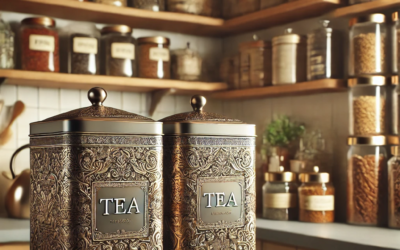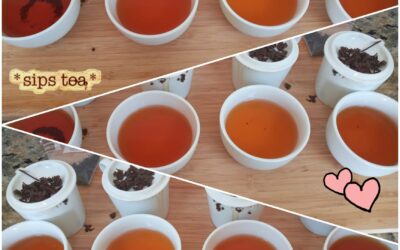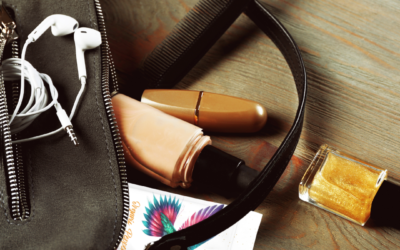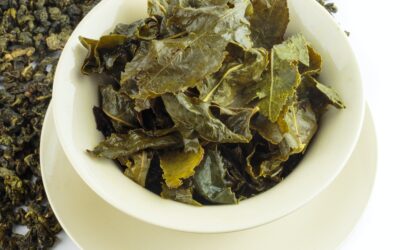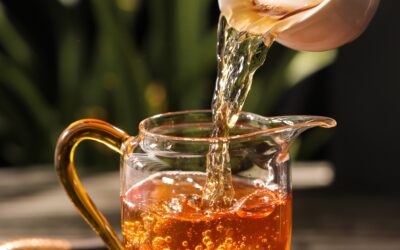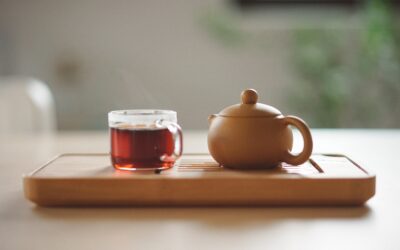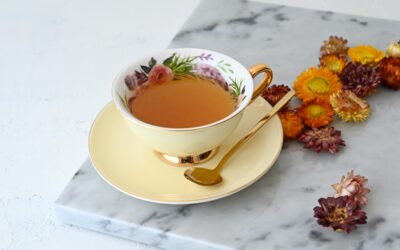Drinking water is one of the simplest ways to stay healthy, but let’s be honest: it’s not always easy. For me, drinking water was much easier when I was reporting to the office daily. Now, with a more flexible schedule, I’ve noticed I struggle to meet my water intake goals. Thankfully, tea has become my hydration hero, as I’ve always been one to sip on it throughout the day. But does tea really count toward your daily water intake?
Tea and Hydration – The Basics
It’s true that tea can be part of your daily hydration, but there are nuances to consider. While tea does contain caffeine, which is known to have a mild diuretic effect (causing increased urination), the amount of caffeine in most teas is relatively low compared to coffee. Studies suggest that in moderate amounts, the water content in tea outweighs any diuretic impact from caffeine, allowing it to contribute to your daily fluid intake.
Moreover, tea contains other compounds, such as polyphenols and L-theanine, which may balance out the effects of caffeine and provide additional wellness benefits. If you consume herbal teas (or tisanes) made from caffeine-free herbs, flowers, and fruits, such as camomile, hibiscus, or peppermint, you can enjoy the full hydration benefits without any concern about caffeine.
For most people, drinking tea or tisanes can complement water in meeting hydration needs, especially when consumed without added sugars or heavy milk.
Why Hydration is Especially Important for Women
For women, staying hydrated is crucial. Proper hydration supports skin health, digestion, energy levels, and even hormonal balance. Women also experience natural fluctuations in fluid needs due to menstrual cycles, pregnancy, and menopause. During these times, the body may require more fluids to maintain equilibrium.
If you’re someone who struggles with drinking plain water, tea can be an enjoyable alternative. With so many varieties available, you can choose teas that align with your needs, whether it’s a green tea for an antioxidant boost or a caffeine-free tisane to help you unwind… hot or cold, it doesn’t matter.
When Tea Doesn’t Count
There are times when tea might not fully count toward your hydration. Highly caffeinated teas, like certain black or matcha teas consumed in large amounts, can have a diuretic effect that might offset their hydrating benefits. Additionally, if you’re adding sugar or cream to your tea, you’re introducing calories and potentially dehydrating ingredients that can impact its overall benefit to your hydration goals.
Flavored or bottled teas often come with added sweeteners and preservatives. While they’re technically liquids, these types of teas don’t offer the same benefits as a freshly brewed cup. Opt for unsweetened teas whenever possible to maximize hydration.
Finding a Balance
Like everything else, balance is key. While tea can be a fantastic way to stay hydrated, it shouldn’t completely replace water. Aim to include both in your routine. If you’re struggling, try alternating between tea and water throughout the day or drinking herbal teas that are caffeine-free to keep your intake varied and enjoyable.
A great way to track your hydration is by listening to your body. Thirst is often the best indicator that you need fluids. Other signs, such as dark-colored urine, fatigue, or dry skin, can also signal dehydration. Pay attention to how you feel, especially after consuming tea, and adjust accordingly.
Can You Overdo It?
Believe it or not, too much of a good thing can be harmful, even when it comes to hydration. Drinking excessive amounts of fluids, including tea, can lead to a rare condition called hyponatremia, where sodium levels in the blood become dangerously low. Symptoms can include nausea, headaches, and confusion. This is more likely to occur if you’re drinking an excessive amount of fluids in a short period, particularly during intense physical activity.
For tea lovers, excessive caffeine intake can also lead to side effects like jitteriness, heart palpitations, and digestive discomfort. Stick to a moderate amount of tea, and remember that herbal tisanes are a wonderful, caffeine-free alternative if you want to sip throughout the day.
The Bottom Line
Tea can be a wonderful part of your daily hydration routine. It’s versatile, flavorful, and can even offer additional wellness benefits. However, it’s important to find the right balance. Make sure to include plain water in your routine and be mindful of the type and amount of tea you consume.
Always be sure to savor the moment and know you’re adding something special to your hydration journey.



